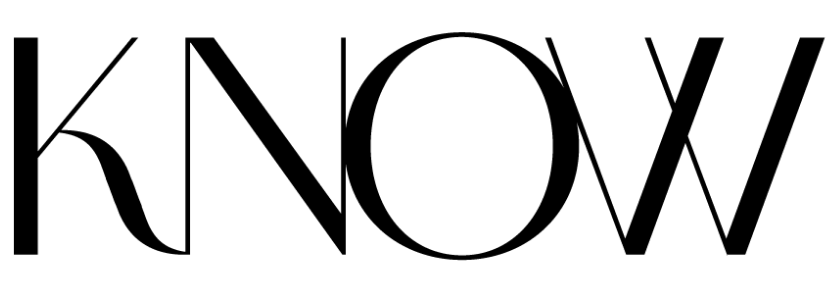
Agile Organizations: Seven Steps for Excellence
Lori Harris | Harris Whitesell Consulting LLC | KNOW Raleigh
“Everything has changed, except our way of thinking.”-Albert Einstein

In a utopian state, organizations accelerate, optimize, and maximize each employee’s experience. They assess each employee’s individual aptitudes, preferences, personality, talents, and competencies. They hire and assign each employee to a job that is perfectly suited to them. They have each employee make the best and highest use of their talents, wisdom, energy, and time. And as consumers receive, access, and purchase the company’s products and services, these organizations sustain a competitive advantage, brand equity, satisfaction, excellence, and profitability.
Due to the nature of humans to seek their basic needs, safety and security, motivation, belonging and love, accomplishments, and recognition—as well as external factors such as leadership, technology, capital investments, agreements, infrastructure, ingenuity, creativity, skills, and talents—utopia is, and always will be, in a constant state of ambiguity and change. Thus, the rate of success for companies, leaders, and employees to achieve is grossly impacted.
Twenty-first century organizations are specialized, lean, cross-trained and highly effective collaborators. They are equipped and able to respond quickly to shifting market conditions. They can articulate a vision of what their organizations stand for, are clear about what they are trying to accomplish, and are focused on how they will compete for business in the marketplace.
These organizations and their leaders explain and communicate the value of their products and services to their targeted clients and customers, and they tell authentic and compelling stories that align with the firm’s vision, culture, values, mission, goals and objectives. They are agile in nature.
An agile company is comfortable with uncertainty. It has the ability to react successfully and quickly respond to changes in the marketplace and environment. It maximizes collaboration and innovation to solve complex problems. It is customer-focused and emphasizes transparent, repetitive, and collaborative efforts of leadership and teams.
The agile workforce is empowered and autonomous by design by transformative leaders who bring out the best in each employee. The agile employee is confident yet humble, courageous yet responsible, disciplined and diversely skilled. The agile organization and its leaders and employees are ready to seize the opportunities to adapt, develop new competencies and work with the comforts of uncertainty.
Seven Steps for Excellence in an Agile Workforce
-
- Articulate Your Vision: The agile leader clearly and concisely translates, aligns, communicates, and infuses their vision and what they expect the organization to be into the organization’s culture, strategy and decision- making, ultimately creating value, growth, and opportunity.
- Design an Agile Culture: The culture is a product of the people’s mindset and communications—what people think, say, and do. Clearly define, align, and reinforce key vocabulary and behaviors throughout the organization.
- Create an Agile Strategy: The agile strategy requires leadership to develop, align and execute a collaborative, transparent, incremental, and experimental framework that focuses on customer needs. Key strategies to consider for an agile company are change leadership, change management, and transition planning.
- Adopt an Agile Workforce: The agile workforce is one that is deeply experienced, well developed, resilient, adaptable, and ready. Keeping pace with professional, leadership, executive and team development needs is key to accelerating and maximizing employee engagement and leadership excellence for stakeholder and customer satisfaction.
- Assess for Agility: There are numerous assessments that optimize organizational Assessments that seek to discover and feature key characteristics and personalities, communication styles, team cohesiveness, and resilience lead to self-awareness and transformation and support the development of an agile workforce and excellence in leadership.
- Encourage Agile Development: Keeping pace with shifting demographics and competitive market changes and embracing rapid innovation and disruption drive opportunities for optimizing a workforce that is agile. Retaining excellence, sustaining employee engagement, and realizing excellence in productivity, satisfaction and profitability require organizations to develop key talent strategies for continuous learning. This makes way for the development of key competencies, skills and behaviors that maximize and accelerate success.
- Maintain Accountability and Offer Accolades: Successful performance coaching is a dynamic It requires a human approach to identifying, selecting, coaching, monitoring, and recognizing how employees are held accountable and celebrated for their lessons learned. It also means recognizing the efforts that successfully create value, growth and opportunity for themselves, their teams, and the organization.
Having leaders and employees connected to the vision, mission and values aligns them with the purpose, which, in turn, affords them the ability to do their best work. These continuous positive experiences and feedback/feedforward opportunities validate and support ongoing excellence in an organization’s culture.
Organizations that remain stuck in the status quo are continuing to face increased competition, loss in market share, shrinking product life cycles and a decline of excellence in their functional ability to remain competitive and purposeful to their customer. These organizations will eventually be swallowed up by the rapid advancements of our global business environment.
Executives and leaders who intentionally design, implement, execute, monitor, mitigate and control agile organizations are better positioned to sustain a competitive advantage in the 21st century global business environment. They will experience higher rates of employee and stakeholder satisfaction and an increase in profitability and brand equity in the market.

More About Lori
Talent Management Executive providing world-class service in Organizational & Culture Effectiveness| Talent Optimization| Executive, Leadership & Team Development & Coaching | People Data Expert | Author & Thought Leader
